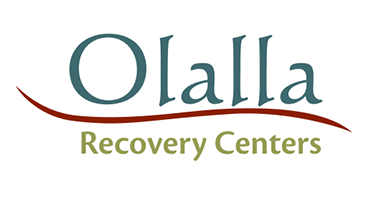
10 Nov Mastering Boundaries in Recovery
The Art of Building Healthy Relationships
In the journey of recovery, one crucial skill that requires practice and commitment is setting and sustaining boundaries. While the concept of negotiating boundaries might not be unfamiliar in the context of recovery, what sets this stage of Recovery apart is the emphasis on learning to identify, communicate and maintain mindful boundaries in order to move forward. While essential for nurturing and maintaining healthy relationships, it’s a tricky skill that ultimately becomes a bedrock for you and your path to sobriety.
As you embark on this transformative journey, it all begins with being open about your substance use history and identifying the healthy boundaries that will play a pivotal role in maintaining your sobriety. You have the right to express to yourself and others how you would like to be treated. You’re on a quest to discover what’s going to work in recovery, creating a clear line between them. But here’s the catch: those boundaries? They’re not set in stone. It’s an ongoing conversation that evolves with your loved ones, friends, and family.
Rokelle Lerner, a popular speaker and trainer on family dynamics, codependency and addiction recovery, captures the meaning of boundaries in this simple statement: “What I value I will protect, but what you value I will respect.”
The Importance of Setting Boundaries
Self-Care– Taking care of yourself might not seem directly linked to setting boundaries, but it’s a key piece of the puzzle. When you make self-care a regular thing, your mind gets clearer, and your self-confidence gets a boost. This clearer thinking can help you spot the boundaries you want to put in place and give you the confidence to enforce them.
Focus on your Recovery– As you navigate the challenges of sober living, adapting your boundaries to your evolving needs becomes essential. Boundaries are not fixed; they adjust to your circumstances and ensure you are respected.
Healthy Relationships– When everyone in your support network respects each other’s boundaries, it’s likely to enhance your relationships and create a strong sense of support within the group. Establishing boundaries should not undermine a healthy relationship.
Emotional Health– Boundaries give us the strength to say “no” when it’s crucial, steering us away from potentially harmful or negative situations and prioritizing self-care, mental well-being, and overall happiness.
How to Identify Your Boundaries
Physical Boundaries
Physical boundaries are the boundaries you set in place to protect your personal space, privacy, and safety. It’s essential that you set physical boundaries for yourself and communicate them to those around you.
Emotional Boundaries
Establishing emotional boundaries involves understanding your emotional capacity, deciding and being selective about sharing your emotions with those who may not respond positively.
Internal Boundaries
While triggers can seem external, it is important to note that a trigger is actually internal. Knowing what emotion or impulse is being triggered is not always obvious. These are the limits you set within yourself, shaped by your values, ethics, and self-discipline. They are instrumental in building self-confidence and protecting your personal boundaries. They also encompass taking responsibility for your actions. Strive to discover your own identity and develop confidence in your values and personal boundaries.
How to Establish Personal Boundaries in Recovery
- Identify harmful risk factors. Recognize elements in your life that jeopardize your sobriety, such as places, people, possessions, behaviors, or thoughts.
- Develop a plan. Take some time to reflect on all your relationships. Work relationships, family, friends, romantic relationships, and most importantly, your relationship with yourself. By taking this time you can design healthy boundaries that will help you maintain your recovery. This plan will include straightforward, enforceable actions that you can integrate into your daily routine.
- Be consistent. Sticking to the boundaries you have identified is just as important as setting them in the first place. To do this, you must be honest with yourself and others who will hold you accountable.
- Seek peer accountability. Sharing your boundaries openly, enhances commitment in your journey to self-improvement and growth. Having a trusted group of peers by your side can make all the difference. Recovery is not achieved in isolation.
- Communicate openly: Choose a calm and appropriate time to discuss your boundaries with the people in your life. Be sincere and transparent regarding your requirements while clearly expressing your requirements and their significance to you.
- Use “I” statements: Frame your boundaries using “I” statements to express your feelings and needs in a positive manner. An I-Statement is a particular kind of statement designed to shift the focus and attention towards your personal experience. The beauty of healthy relationships is that there’s trial and error, forgiveness, and grace.
- Respect others’ boundaries: As you prioritize your own boundaries, extend the same courtesy to others. Mutual respect is key to maintaining healthy relationships.
Conclusion
Setting boundaries may be a challenging endeavor for some, but it’s an essential skill for building and maintaining healthy, fulfilling relationships. Boundaries create a framework for clear expectations, protect our well-being, and promote respect among all parties involved. For long-term success and in order to achieve healthy relationships, you gain a sense of control over your life by confidently identifying and requiring respect for your boundaries.
Remember that setting boundaries is not about shutting people out; it’s about inviting them into your life on terms that are comfortable and respectful for both you and them. By mastering the art of boundary-setting, you can create a more harmonious and balanced life filled with meaningful connections.
Setting and sustaining boundaries is a skill and takes practice. It can mean knowing and understanding your limits, building self-awareness, considering one’s past and present, and acknowledging your feelings. In all kinds of healthy relationships, it’s important to regularly discuss and respect each other’s boundaries.
GET HELP NOW
Remember, Olalla Recovery Centers is here for your addiction recovery journey. If you or a loved one is ready to seek assistance for an addiction, the first step is to seek a professional who can help. Call or contact us anytime.


